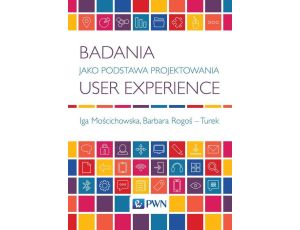Opis produktu
Opinie
Spis treści
Książka podejmuje problem miejsca i roli w kulturze oraz dziewiętnastowiecznej codzienności dwóch form: dziennika choroby oraz szkicownika malarskiego jako świadectw zjawiska określanego jako zwrot ku prywatności. Brali w nim udział nie tylko artyści-zawodowcy, ale także amatorzy pochodzący z różnych stanów, niezależnie od płci i wieku. Książka oparta na nieznanych dotąd źródłach archiwalnych, ukazuje rozmiar zjawiska i jego znaczenie, omawia również przykłady źródeł (dziennik choroby Wandy Czartoryskiej, szkicowniki rodziny Branickich z nieznanymi szkicami młodziutkiego Wojciecha Kossaka), wskazując na zróżnicowanie ich form i przemiany, którym ulegały.
******
Recorded legacies of everyday life… On nineteenth-century illness diaries and personal painters’ sketchbooks
The book addresses the issue of place and role in culture and 19th century everyday life of two forms: the illness diary and the painter’s sketchbook as testimonies of a phenomenon referred to as the privacy turn. Its participants included not only professional artists but also by amateurs of different status, regardless of gender and age. The book, based on hitherto unknown archive sources, shows the significance of that movement and describes some such sources (Wanda Czartoryska’s illness diary, the sketchbooks of the Branicki family, which include unknown sketches of very young Wojciech Kossak), pointing to the diversity of their forms and the transformations they underwent.
******
Recorded legacies of everyday life… On nineteenth-century illness diaries and personal painters’ sketchbooks
The book addresses the issue of place and role in culture and 19th century everyday life of two forms: the illness diary and the painter’s sketchbook as testimonies of a phenomenon referred to as the privacy turn. Its participants included not only professional artists but also by amateurs of different status, regardless of gender and age. The book, based on hitherto unknown archive sources, shows the significance of that movement and describes some such sources (Wanda Czartoryska’s illness diary, the sketchbooks of the Branicki family, which include unknown sketches of very young Wojciech Kossak), pointing to the diversity of their forms and the transformations they underwent.
Cechy
| Rodzaj: | e-book |
| Format pliku: |
|
| Autor: | Elżbieta Wichrowska |
| Rok wydania: | 2023 |
| Liczba stron: | 496 |
| Miejscowość: | Warszawa |
| Serie: | Communicare – historia i kultura |











